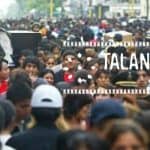Reflections on climate change adaptation
Dr. Vicente Barros, Co-Chair of Working Group II of the Intergovernmental Panel on Climate Change, will be present at the meeting. (IPCC) reflected on adaptation in Latin America on the basis of the results of the IPCC Fifth Assessment Report. According to the Report, scientific evidence points to an increase in the variability of high-risk climate events due to anthropogenic (man-made) causes.
“Adaptation is a contribution to the universal task, but it cannot be applied to every case as a recipe.”, said Dr. Barros in the webinar offered through the platformLet's Talk Climate Change and Sustainability‘ of the Inter-American Development Bank.
Adaptation strategies arise from the need to adjust productive and social activities to the actual or projected climate and its effects, so as to moderate or, in the best case, benefit from the opportunities presented by changes in ecosystems.
For example, due to the increase in temperature, water no longer flows down with greater flow in summer but in spring; therefore, populations and businesses that use the water resource must adjust to such gaps.
Indeed, according to Dr. Barros, adaptation does not seek to prevent the occurrence of dangerous climate events, but rather to reduce exposure to the risks that such events may cause; in other words, to reduce vulnerability to climate hazards.
However, according to the specialist, “there are no universal recipes: adaptation in one place may be very different from what may occur in another place with respect to the same problem”. Each case of adaptation must be judged according to its own particularities, depending on the particularities of the ecosystem, the community, its level of development, the available infrastructure and capacities, among other variables.
Dr. Barros closed the webinar with a reflection on the need to understand the adaptation cycle in Latin America: “it is not a matter of taking measures and forgetting about them, because in the region measures are often taken in a context of uncertainty, either without all the necessary scientific information on the state of affairs or without certainty about how circumstances will change in the future”.
Adaptation measures, therefore, are part of a cycle that requires constant follow-up. Once implemented, it is necessary to monitor the implemented measure, and eventually make a new study to modify the necessary corrections. “Adaptation is a continuous process within a particular case; adaptation varies from one case to another,” concludes the climatologist.
Additional data:
- Since the IPCC was established in 1992, its work has led to a better understanding of climate science and has provided a more complete picture of vulnerabilities in different parts of the world.
- Dr. Vicente Barros is a member of the Sea and Atmosphere Research Center of the Conicet and the Faculty of Exact and Natural Sciences of the University of Buenos Aires, co-chair of the Intergovernmental Panel on Climate Change and professor emeritus of climatology at the University of Buenos Aires.
By: George Simons




